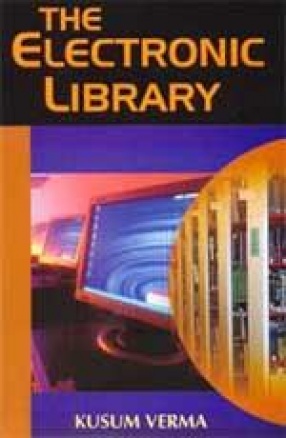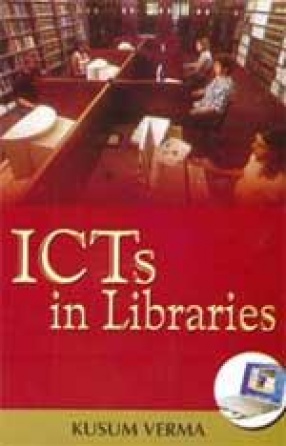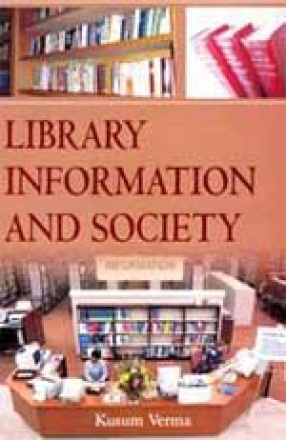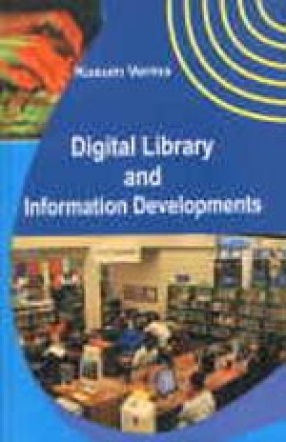
Kusum Verma

Showing all 11 books







We live in a time when libraries will se their missions expanded as they continue to collect and preserve analog materials while at the same time participating wholeheartedly in the digital revolution. With multimedia technology we have image libraries, audio libraries, digital video libraries and web libraries. Libraries are suing web to create gateways to what has been termed a massive library system, where people can roam through the electronic equivalent of ...

Libraries have always adopted newer technologies for fulfilling their basic commitments, and the adoption of digital technology in libraries is a part of this historical process. With the emergence of electronic media the potential to store large quantities of information has increased, with an advantage of accessing and transferring it to any place and from anywhere in the world through electronic means using the advanced network facilities which is a boon to ...

Metadata, literally “data about dataâ€, is an increasingly ubiquitous term that is understood in different ways by the diverse professional communities that design, create, describe, preserve, and use information systems and resources. Whether in the traditional context or in the internet context, the key purpose of metadata is to facilitate and improve the retrieval of information. Cultural heritage and information professionals such as museum registrar, ...

The dawn of information revolution is considered to be one of the marvels of the twentieth century. The new technologies have not only transformed the shape of modern libraries but also created very many exciting possibilities and opportunities. The role of information technology in modern libraries are described elaborately in the present volume. The opportunities and challenges of digitized libraries are also discussed. The work will serve as a highly ...

With the rise of modern technology, the logistics of the workplace changed forever, new rules were needed to govern behaviour, and to develop procedures for librarians on the front lines of the information age. To meet the challenges of the digital age, librarians have to concentrate on the client expectations, electronics and print information, new skill development and standard hardware. Moreover, they should be more conscious about paradigm shifts from paper ...

With the advent of digital technology, many knowledge creators do their work on computers. Some of that knowledge may be printed on paper, but much of it, particularly databases, geographic information, scientific data sets, and websites, exists only in electronic form. The digital documents are vulnerable to loss via decay and obsolescence of the media on which they are stored, and they become inaccessible and unreadable when the software needed to interpret ...

Information is power, and we live in a world where the boundaries of that power are rapidly shifting. The nature of the new society and the role to be played by libraries is shaping up into one of the great debates of the information age, for most countries now recognize the importance of information as a vast resource. The present volume provides an elaborative description of the roles and responsibilities of libraries in the information society. The issues and ...

Libraries are being swept along with the currents of rapidly changing technology. While continuing to provide many traditional information services, librarians are developing new skill sets and growing into the new roles that are necessary to support technology-based services. Technology has impacted nearly every facet of library work. The mission of the libraries-providing excellent information service- has not changed, but technology has added several new ...

The library of today has traversed a long way, from being the prerogative of kings and noblemen to making all information available to the general public without delay. Such transformation has meant that facilities like closed-circuit television computerised data retrieval and a wide array of microfilm technology has been ushered into the revolution of library science, and the computer and its applications have been instrumental in this regard. This book attempts ...

Digital libraries are no longer fictive, are increasingly providing pertinent solutions for this dilemma. Significantly reducing the growing costs of cataloguing, preserving and making accessible to readers the vast collections of materials which is faced by conventional libraries, digital libraries also offer a platform wherein never methodologies of information development and database management can be maintained. This book aims to delineate for the readers ...

Libraries, whether digital or concrete, are contemporarily subject to such information and communication technologies that are continually evolving making techniques associated with the acquisition, organization for access, and physical processing and maintenance of collections of library materials highly complex, yet fascinating at the same time. The present book has been intended as a text which gives an overview of the current operations and service systems ...
